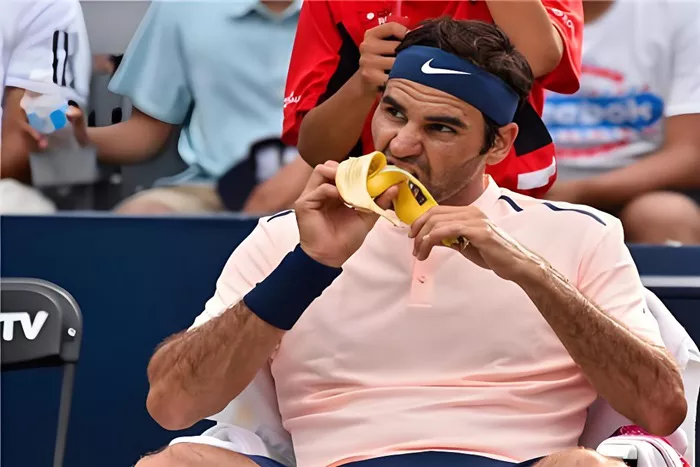Athletes have unique nutritional needs, as they require more energy and nutrients to support their physical activity and recovery. Eating a well-balanced diet that includes a variety of nutrient-dense foods is essential for optimizing athletic performance and maintaining overall health. In this article, we will explore the best meals for athletes, including the key nutrients they need and the specific foods that can help them meet their nutritional needs.
Breakfast is often referred to as the most important meal of the day, and for athletes, it’s especially crucial for providing the energy and nutrients needed for physical activity. A balanced breakfast should include a combination of carbohydrates, protein, and healthy fats.
Good breakfast options for athletes include
Oatmeal with fruit and nuts: Oatmeal is a great source of complex carbohydrates, which provide sustained energy for physical activity. Adding fruit and nuts to oatmeal can increase its fiber and protein content, as well as provide additional vitamins and minerals.
Greek yogurt with fruit and granola: Greek yogurt is high in protein, which is important for muscle recovery and repair. Adding fruit and granola can provide additional carbohydrates and fiber, as well as vitamins and minerals.
Whole-grain toast with avocado and eggs: Whole-grain toast provides complex carbohydrates for energy, while avocado and eggs provide healthy fats and protein. This combination can help athletes feel full and satisfied for longer periods of time.
Lunch is another important meal for athletes, as it can provide the energy and nutrients needed for afternoon workouts or competitions. A balanced lunch should include a combination of carbohydrates, protein, and healthy fats.
See also: 8 Best Protein Drinks for Weight Gain
Good lunch options for athletes include
Grilled chicken or fish with brown rice and vegetables: Grilled chicken or fish provides protein for muscle recovery and repair, while brown rice provides complex carbohydrates for sustained energy. Vegetables provide fiber, vitamins, and minerals.
Quinoa salad with vegetables and beans: Quinoa is a great source of complex carbohydrates, as well as protein and fiber. Adding vegetables and beans to quinoa can provide additional vitamins, minerals, and protein.
Turkey and cheese sandwich on whole-grain bread: Whole-grain bread provides complex carbohydrates, while turkey and cheese provide protein and healthy fats. Adding vegetables to the sandwich can provide additional fiber, vitamins, and minerals.
Dinner is the last meal of the day and should be balanced and nutritious to support recovery and repair during sleep. A balanced dinner should include a combination of carbohydrates, protein, and healthy fats.
Good dinner options for athletes include
Grilled steak or tofu with sweet potato and vegetables: Grilled steak or tofu provides protein for muscle recovery and repair, while sweet potato provides complex carbohydrates for sustained energy. Vegetables provide fiber, vitamins, and minerals.
Whole-grain pasta with tomato sauce and meatballs: Whole-grain pasta provides complex carbohydrates, while tomato sauce and meatballs provide protein and healthy fats. Adding vegetables to the sauce can provide additional fiber, vitamins, and minerals.
Baked salmon with quinoa and roasted vegetables: Baked salmon provides protein and healthy fats, while quinoa provides complex carbohydrates and fiber. Roasted vegetables provide additional fiber, vitamins, and minerals.
Snacks
In addition to meals, athletes may need to consume snacks to maintain energy levels and support recovery between meals. Good snack options for athletes include
Fruit with nut butter: Fruit provides carbohydrates and fiber, while nut butter provides healthy fats and protein.
Greek yogurt with berries: Greek yogurt provides protein, while berries provide carbohydrates and fiber.
Hummus with vegetables: Hummus provides protein and healthy fats, while vegetables provide fiber, vitamins, and minerals.
The Importance of Hydration for Athletes
In addition to eating a well-balanced diet, hydration is also crucial for athletic performance and recovery. Athletes should aim to drink enough fluids to replace the water lost through sweat during physical activity. The amount of fluid an athlete needs depends on their body weight, the intensity and duration of their activity, and the environmental conditions. As a general guideline, athletes should aim to drink at least 16-20 ounces of water 2-3 hours before exercise, and 8-10 ounces of water every 10-20 minutes during exercise.
In conclusion, athletes require a well-balanced diet that includes a variety of nutrient-dense foods to support their physical activity and recovery. Eating meals that include a combination of carbohydrates, protein, and healthy fats can help athletes meet their nutritional needs and optimize their athletic performance. By incorporating the best meals for athletes into their diet, athletes can fuel their bodies for success on and off the field.
Related topics:


